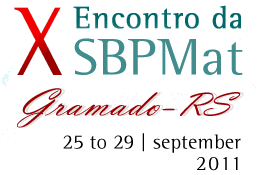

| Registrations open! |
|
Dead line: Submission: 06/15 Acceptance: 07/18 |
 |
 |
|
|
|
||
Symposium P: GrapheneScope of the SymposiumGraphene was the first two-dimensional material observed. It is composed of carbon atoms arranged in a hexagonal network (honeycomb structure). Although developed very recently, graphene has already found many applications such as solar cells, liquid crystal devices, molecular sensors, and nano-sized transistor prototypes. In the area of basic research, the discovery of this material has also revealed new and interesting physical effects that culminated with the Nobel Prize in Physics 2010 awarded to Andre Geim and Konstantin Novoselov "for groundbreaking experiments regarding the two-dimensional material graphene". This blossoming of graphene research derives from several factors, the most important being that graphene is an easily fabricated material in which fundamental aspects of Physics and Chemistry can be observed. From the fundamental Physics point of view, the fact that graphene is a tabletop system, where a myriad of physical properties of two-dimensional Dirac fermions can be investigated, is perhaps the most compelling. Not to be forgotten is graphene's potential as a technological material, due to its exceptional mechanical and electronic properties, which allow us to envisage the use of this material in a variety of applications. Indeed, the Physics of graphene manifests the uniqueness of carbon among the elements in the periodic table. The aim of the symposium "Graphene" is to bring scientists in the area of graphene science together to examine our current understanding and to define future trends of this exciting field. The symposium will address progress at the frontiers of fundamental as well as applied research, and will allow participants to exchange ideas and results of their latest work. Abstracts will be solicited in (but not limited to) the following areas:
Invited speakersAdalberto Fazzio (USP), Bernardo R. A. Neves (UFMG), Carlos A. Achete (INMETRO), Daniel C. Elias (The University of Manchester, UK), Eduardo Granado (UNICAMP), Helio Chacham (UFMG), Marcos A. Pimenta (UFMG), Pedro Venezuela (UFF), Rodrigo B. Capaz (UFRJ). Plenary Lecture: Marcus Freitag (IBM, USA) OrganizersLuiz Gustavo Cançado, Departamento de Física – UFMG (cancado@fisica.ufmg.br) |

|